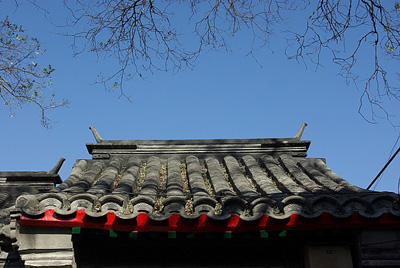BEIJING - The Chinese capital had 115 "blue sky" days, with fairly good air quality, between January 1 and Wednesday.
The number of "blue sky" days was 12 more than the same period last year, according to the Beijing Municipal Environmental Protection Bureau.
It was a clear sign that years of anti-pollution efforts by the Olympic host city continue to pay off, said Du Shaozhong, the bureau's deputy chief and spokesman.
"As far as air quality is concerned, I'm fully confident that Beijing will fulfill its commitment of hosting a 'Green Olympics', " said Du.

Major pollution indices, including concentrations of sulfur dioxide, carbon monoxide, nitrogen dioxide and particulate matter, fell markedly.
Beijing has spent more than 120 billion yuan (US$17.1 billion) to improve its air quality, and the number of "blue sky" days increased to 246 last year from 100 in 1998, when the capital launched the "blue sky" campaign.
Beijing's neighboring municipality Tianjin and the nearby provinces of Hebei, Shanxi and Shandong, plus the Inner Mongolia Autonomous Region, are helping the capital attain its anti-pollution goals. These efforts include closing major polluters, removing obsolete taxis from the roads and retrofitting gasoline stations to capture harmful chemicals.
Beijing aims to have 70 percent of the days up to standard this year, so there should be at least 256 "blue sky" days.
The municipal government slashed public transport fares last year in an attempt to lure local residents out of their private cars, which could cut emissions. The city also converted 18,000 obsolete coal-fired boilers and installed electric heaters in 20,000 detached houses, replacing coal-heated devices.
Beijing is also considering traffic controls during the Olympics, in which drivers with even- and odd-numbered license plates, except taxis, buses and emergency vehicles, would only be able to drive on alternate days. Offenders would be fined.
During a test of this proposal conducted from August 17-20, 2007, about 1.3 million cars were taken off the city roads each day and the amount of pollutants discharged was cut by 5,815.2 tons, according to a report by the Beijing Municipal Bureau of Environmental Protection.
Apart from introducing new discharge standards for coal-fired boilers in late June, the national capital will also try other measures to limit atmospheric pollution this year, said Du.
They include getting 6,400 obsolete motor vehicles off the roads, such as mass transit, sanitation and postal service vehicles, plus 2,000 cabs.
Beginning March 1, the city also imposed new vehicle exhaust standards in line with those practiced in developed nations in Europe.
Experts predict the newly adopted exhaust standards for motor vehicles will help reduce pollutant discharges by about 50 percent.